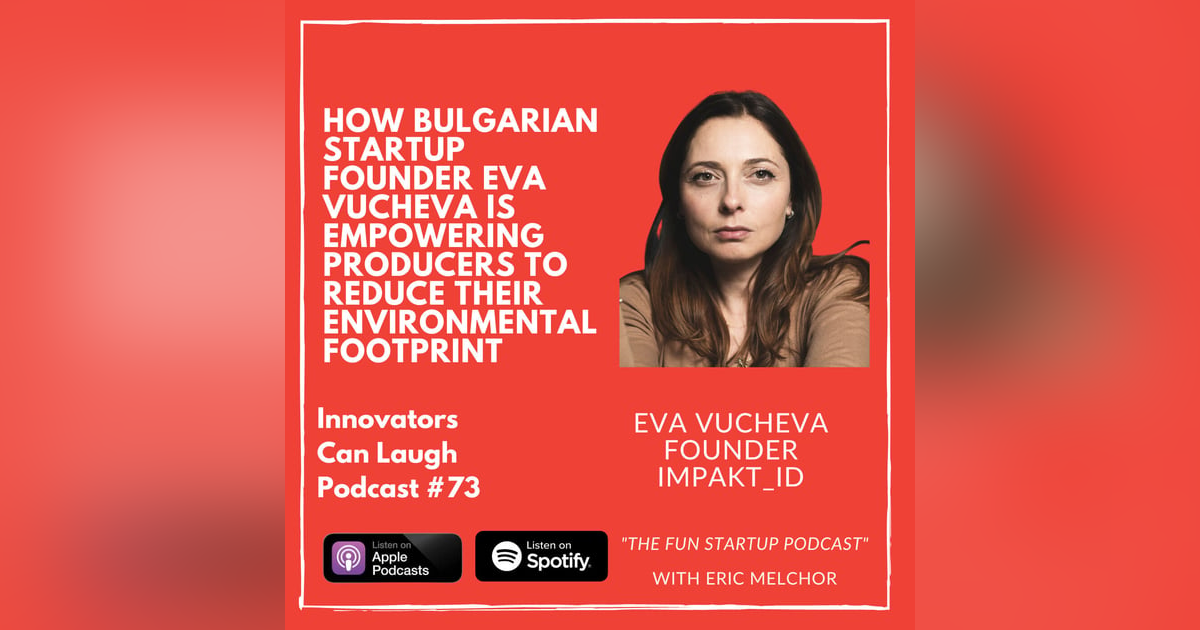How Bulgarian Startup founder Eva Vucheva is empowering producers to reduce their environmental footprint

Empowering consumers and producers to reduce through environmental footprint through business intelligence.
In a world in which we over-produce, over-consume, and dispose of things with ease, how can we empower consumers and producers to reduce their environmental footprint?
In this episode I chat with Eva Vucheva, founder of Impakt ID – a business intelligence tool that combines material impact research, product data and statistical modeling to turn generic product information into actionable data. Eva, is also the co-founder of Contento.tech – a crowd-based content generation platform that helps businesses grow faster and expand to new markets without the high risk of hiring and managing a dedicated content team.
Show highlights:
1:38 – you were once fired, but became a friend to the person who fired you. Can you tell us what happened?
3:50 – what else were you doing that made you appear like an asshole?
7:25 – why was getting fired a good thing and where did your career go from there?
13:00 – what industries does Contento.tech serve?
14:25 – what does an ideal customer look like for Contento.tech?
15:50 – what does the organization look like?
18:20 – what is Impakt ID?
19:25 – what is the EU packaging regulation that must be in place by 2025?
23:40 – are you currently bootstrapping Impakt ID and do you plan on fundraising?
26:40 – a favorite childhood toy you played with while growing up?
Tune in to every conversation about exciting European Startups and Innovators on Apple Podcasts, Spotify, and Amazon! Leave a rating and review so we can keep making amazing interviews!
Listening on a desktop & can’t see the links? Just search for Innovators Can Laugh in your favorite podcast player.
Do you wish to connect with our special guest?
Visit Name website: https://www.impaktid.com/
Connect with Eric:
Visit his website: https://innovatorscanlaugh.com
For the Innovators Can Laugh newsletter in your inbox every week, subscribe at
Tune in to every conversation about exciting European Startups and Innovators on Apple Podcasts, Spotify, and Amazon! Leave a rating and review so we can keep making amazing interviews!
Listening on a desktop & can’t see the links? Just search for Innovators Can Laugh in your favorite podcast player.
Connect with Eric:
Visit his website: https://innovatorscanlaugh.com
For the Innovators Can Laugh newsletter in your inbox every week, subscribe at https://innovatorscanlaugh.substack.com
Past Guests:
----
Past guests on Innovators Can Laugh include Yannik Veys, Ovi Negrean, Arnaud Belinga, Csaba Zajdó, Dagobert Renouf, Andrei Zinkevich, Viktorija Cijunskyte, Lukas Kaminskis, Pija Indriunaite, Monika Paule, PhD, Vytautas Zabulis, Leon van der Laan, Ieva Vaitkevičiūtė.
-----
Additional episodes you might enjoy:
#55 Yannik Veys - From creating the Uber for service professionals to growing Hypefury
#53 Tzvete Doncheva - Overcoming barriers to get into a VC with Tzvete Doncheva
#50 V...











